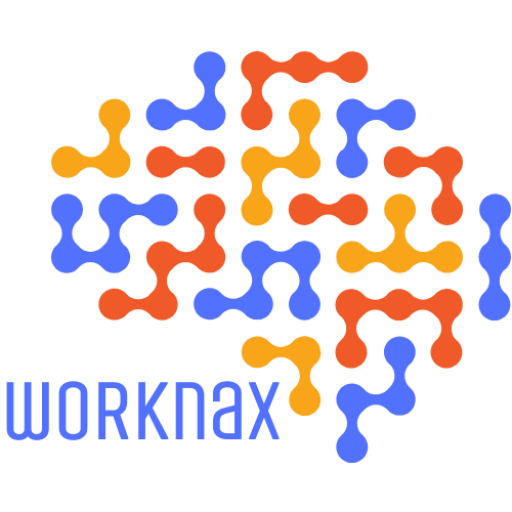Anúncios
In today’s rapidly changing job market, employers are increasingly recognizing the tremendous value that online learning certificates offer. These credentials provide valuable insights into a candidate’s skills, knowledge, and commitment to ongoing professional development. As more individuals turn to online learning, it has become essential for job seekers to equip themselves with the right credentials, enabling them to stand out amongst their peers.
Companies today are faced with the significant challenge of finding qualified candidates in an increasingly competitive landscape where skills and qualifications heavily influence hiring decisions. This is where online learning certificates can set individuals apart. By investing their time in these programs, job seekers not only enhance their knowledge base but also signal their readiness to adapt and learn. This proactive approach demonstrates to employers that candidates are committed to continuous improvement.
Employers have come to appreciate that online learning is often tailored specifically to job-related skills that are essential for success in various roles. This tailored approach allows candidates to gain relevant expertise that traditional education may not fully cover. The ability to demonstrate specific competencies through these certificates is invaluable for hiring managers who are seeking professionals with specialized skills to meet their organization’s needs.
Moreover, online courses are designed to be flexible, accommodating different learning styles and personal schedules. This attribute enables candidates to enhance their skills without compromising their current jobs or personal obligations. Employers recognize that the tenacity and time management skills required to balance both work commitments and further education reflect positively on the candidates’ abilities.
In many industries, the pace of technological advancement means that ongoing education is vital to staying competitive. Employers value candidates who actively embrace lifelong learning, as this reflects their adaptability and a proactive attitude toward personal and professional growth. Online certificates signify that individuals are taking the initiative to stay current in their fields and keep pace with the rapid changes occurring in technology and practices.
Furthermore, many online learning platforms collaborate with industry leaders to develop their courses and programs. This collaboration ensures that the content is relevant, practical, and aligned with real-world expectations. As a result, employers trust that candidates with these credible certificates have received high-quality education and training, which boosts their confidence in the capabilities of potential hires.
The increasing availability of online courses means that candidates can often learn at their own pace. This self-driven approach to education appeals to employers, who recognize candidates’ determination, discipline, and ability to motivate themselves to achieve their learning goals. Such personal attributes are often found to be equally valuable as acquired knowledge or technical skills.
Certificates from reputable online platforms carry significant weight in the job market today. Many employers have developed a preference for candidates who have demonstrated commitment and initiative through these non-traditional educational avenues. This shift presents a pathway for candidates from diverse backgrounds to access and leverage opportunities that may have previously seemed out of reach due to traditional educational requirements.
Employers also appreciate the diversity of online learners. Individuals seeking online learning come from various sectors and life experiences, contributing unique skills and perspectives to the workplace. This diversity fosters a well-rounded workforce, as it brings together individuals with various backgrounds, enhancing creativity, innovation, and problem-solving abilities.
Additionally, the global reach of online learning has led to a growing acceptance of remote work. As organizations expand their talent pools beyond geographical boundaries, employers are more inclined to consider applicants with online certificates regardless of where they are located. This paradigm shift opens up a wider array of opportunities for job seekers across the globe.
Cost-effectiveness is another benefit as employers recognize the value of online learning from a financial perspective. Traditional educational pathways can often be prohibitively expensive and time-consuming, resulting in overwhelming student debt. Online certificates provide a more affordable option, allowing individuals to upskill and advance their careers without incurring significant financial burdens.
As the traditional workforce evolves, employers are adapting to these changes and seeking innovative solutions for talent acquisition. By embracing candidates with online learning certificates, organizations reflect a forward-thinking approach that prioritizes ongoing education and professional development, making them more competitive in their industries.
In addition, the growing importance of soft skills in the workplace cannot be overlooked. Many online learning platforms offer courses focused on essential skills such as communication, teamwork, and problem-solving. Employers recognize that candidates with strong soft skills are often better equipped to collaborate and excel in diverse work environments, making them valuable assets to any organization.
The increasing integration of technology across various sectors also amplifies the need for online learning. As businesses invest heavily in digital tools and technologies, employees must be adequately equipped with the necessary skills to operate them effectively. Online learning certificates directly address this growing demand by showcasing a candidate’s proficiency in relevant technologies and tools.
In many cases, employers are not only looking for academic credentials but also for evidence of real-world experience. Online learning certificates often include hands-on projects, case studies, or internships that allow students to gain practical knowledge. This experiential learning approach enhances a candidate’s profile and reassures employers that they possess the necessary capabilities to succeed in the roles they are applying for.
Networking opportunities may also arise through online learning platforms. Many of these platforms offer forums, discussion boards, or live sessions where learners can connect with each other and industry professionals. These networks can lead to job referrals and recommendations, further emphasizing the added value of online certificates in a candidate’s career advancement.
Importantly, the personalization of online learning experiences resonates strongly with younger generations entering the workforce. Millennials and Gen Z have different expectations, seeking career pathways that align with their aspirations and values. Employers who recognize and support their continued education through online learning can attract and retain these talented individuals eager to grow within their organizations.
Evaluation methods used in online courses often provide immediate feedback. This immediacy allows learners to quickly adjust their strategies and improve upon weak areas. Employers appreciate this agility, as it mirrors the fast-paced decision-making required in many modern business environments, ensuring that candidates can adapt as needed.
Furthermore, the rise of micro-credentials offers a new layer of validation for skills learned online. These bite-sized courses allow candidates to easily showcase specialized skills acquired through various learning platforms, giving employers a quick snapshot of an applicant’s qualifications for specific roles. This emerging trend is transforming how both employers and employees view skill acquisition and professional development.
The transparency of online learning programs is another aspect that employers favor. Most certifications are prominently visible on professional networking sites such as LinkedIn, making it effortless for recruiters to assess a candidate’s background. This added layer of accountability ensures that candidates genuinely possess the skills they claim, making the hiring process more efficient and reliable.
Education that promotes critical thinking is crucial for navigating challenges present in the workplace today. Online learning frequently incorporates case studies and real-world scenarios that encourage analytical thinking and problem-solving prowess. Employers highly value candidates who can think critically and strategically, as such competencies often lead to better outcomes in complex environments.
As online learning continues to gain traction, the stigma surrounding alternative educational pathways is diminishing. Employers are increasingly open-minded about candidates with diverse education backgrounds, focusing more on capabilities and potential rather than solely on traditional degrees. This shift fosters a more inclusive job market where all candidates can thrive and showcase their value to prospective employers.
Moreover, online learning provides opportunities for professional collaboration on a global scale. Companies recognize that cultural competence is essential in today’s interconnected world. Candidates with a global perspective gained through international online learning programs are seen as valuable assets, as they can contribute to a company’s ability to operate in diverse markets.
The ability to track progress and obtain measured results through online learning contributes to its appeal. Employers appreciate having access to detailed records of skill acquisition, allowing for better workforce planning and development decisions. Such data also support employee evaluations and career advancement discussions, making them integral to talent management strategies.
With the growing reliance on technology, the ability to effectively manage remote work becomes paramount. Online learning often includes modules focused on productivity, teamwork, and time management in virtual environments. Employers certainly prefer candidates who can navigate these challenges skillfully, ensuring a smooth transition to remote work setups when required.
As companies pivot to digital strategies, professionals who have upskilled through online learning stand out amidst the competition. Employers recognize that adaptability is essential to achieving business goals, especially in a fluctuating economy. Candidates who demonstrate a deep understanding of evolving industry dynamics through their learning experiences often become integral to an organization’s success.
The combination of structured learning and independence offered by online courses prepares candidates for the varying demands of different roles. Employers benefit from hiring individuals who can work both collaboratively in teams and autonomously when required, as this flexibility contributes to overall productivity and efficiency within the organization.
To conclude, the rise of online learning certificates signifies a transformative shift in the employment landscape. Employers are increasingly valuing these credentials as indicators of a candidate’s commitment to growth and skill acquisition. The adaptability, discipline, and relevant expertise demonstrated through online learning resonate strongly with the specific needs of modern organizations.
As the job market continues to evolve, those who embrace lifelong learning through online courses will find themselves well-positioned for success in their careers. The journey of professional development does not end with earning a degree; rather, it is an ongoing process that employers regard with high esteem and recognize as crucial to navigating the complexities of the contemporary workforce.



